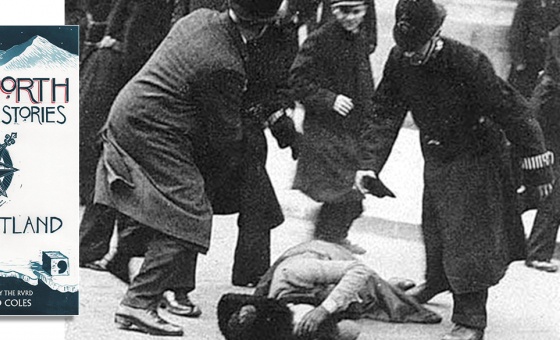This is the last article you can read this month
You can read more article this month
You can read more articles this month
Sorry your limit is up for this month
Reset on:
Please help support the Morning Star by subscribing here
SUPREME Court rejection of the latest appeal by Chagos Islanders against the British government’s continued denial of their right of return to their homeland is beyond comprehension.
After 45 years of exile in Mauritius or Britain, Chagossians are undimmed in their desire to resettle the islands from which they were driven by British colonialism.
The Supreme Court majority has swallowed the government’s line that its decision to create a marine park around the islands, complete with a total ban on fishing, arises from a commitment to conservation.
It is nothing of the kind. It is a cynical ploy to deny islanders — originally driven from their homes to provide the US with a military base in 1973 — a means of feeding themselves when they return.
Chagossians were not renowned, before their removal, for degrading the environment, unlike the US and Britain that conspired to cobble together a dirty deal to hand over the island of Diego Garcia for a US base in return for a discount on what Britain paid Washington for its Polaris nuclear weapons system.
If, when they are finally allowed to go home, they feel the need for a marine conservation area, they will be entitled to set one up.
It is not up to Britain, which continues to posture like an arrogant colonial governor, to act so high-handedly when it has so many environmental concerns of its own to tackle.
The Chagos Islanders, like so many people in Britain, must be looking forward to the possibility of Labour leader Jeremy Corbyn becoming prime minister at the earliest possibility.
He set up, alongside Liberal Democrat peer Lord Avebury, the Chagos Islands all-party parliamentary group in 2008 and can be relied on to treat the islanders more fairly than the Tories and the judiciary have.
The Chagos Islanders are not prepared to disappear from public sight and their supporters should continue to back the case for their national rights.
Westminster has a serious harassment problem
WHEN nearly one in five people in a workplace report having experienced or witnessed sexual harassment in the past 12 months, something is seriously wrong.
This is even more crucial when the workplace turns out to be the national parliament, where normal employment regulations have been ignored and where arcane power-oriented practices persist.
Setting up a Behaviour Code, as recommended by a cross-party working group chaired by Leader of the Commons Andrea Leadsom, together with an independent complaints procedure and confidential helplines, is a step forward.
However, many MPs are supportive of the case put forward by Unite national officer Siobhan Endean that formal union recognition is needed.
There is such a gross disparity in power between staff and MPs elected by tens of thousands of voters that individuals need the additional support of a professional body that will not give in to intimidation, brow-beating or appeals to partisan loyalty.
This is further exemplified by figures relating to harassment or bullying of a non-sexual nature over the same period, which was raised by 45 per cent of women and 35 per cent of men.
Endean’s call for “root-and-branch reforms,” including modernised procedures, has to be taken on board.
Rowdy behaviour by MPs in the chamber has often been criticised by Speaker John Bercow, who notes the negative effect this has on a TV audience and perpetuates an air of bullying.
If the Welsh and Scottish parliaments can conduct their no less rigorous debates and inquisitions of first ministers without degenerating into public school hooliganism, it should be possible in Westminster.











